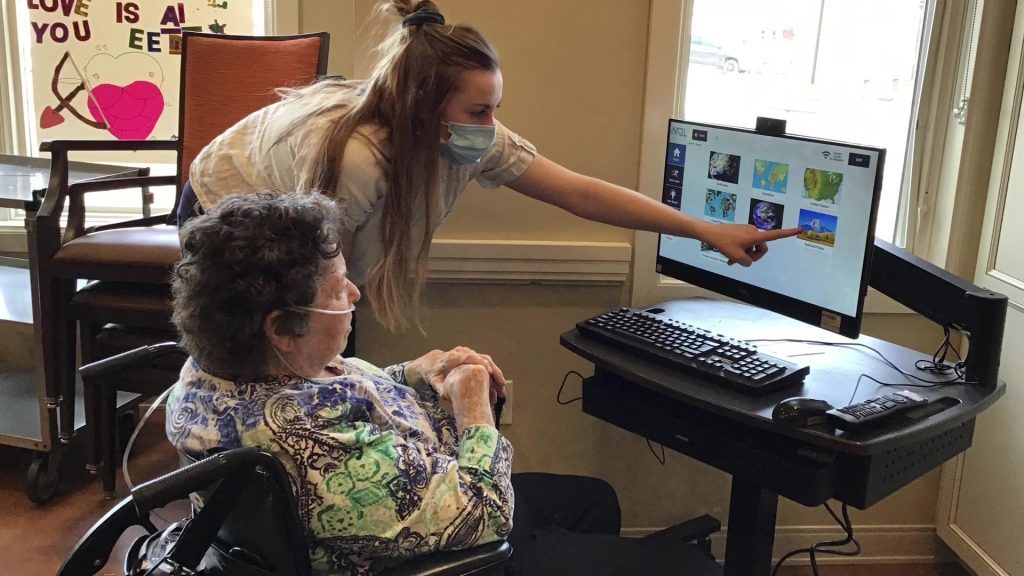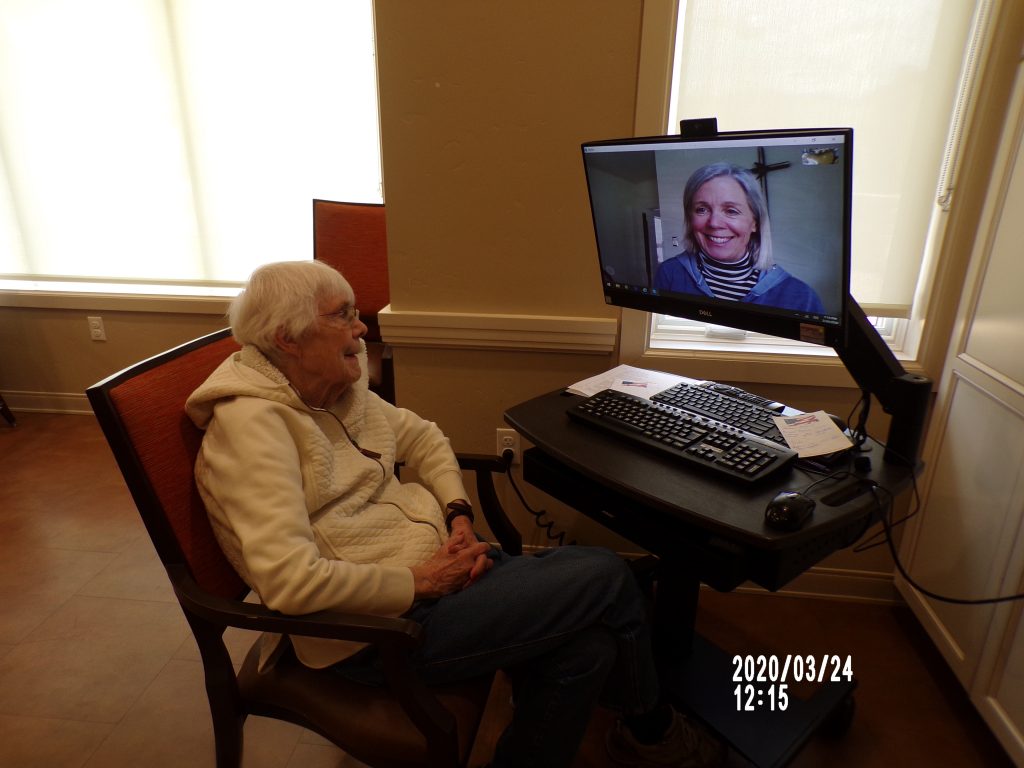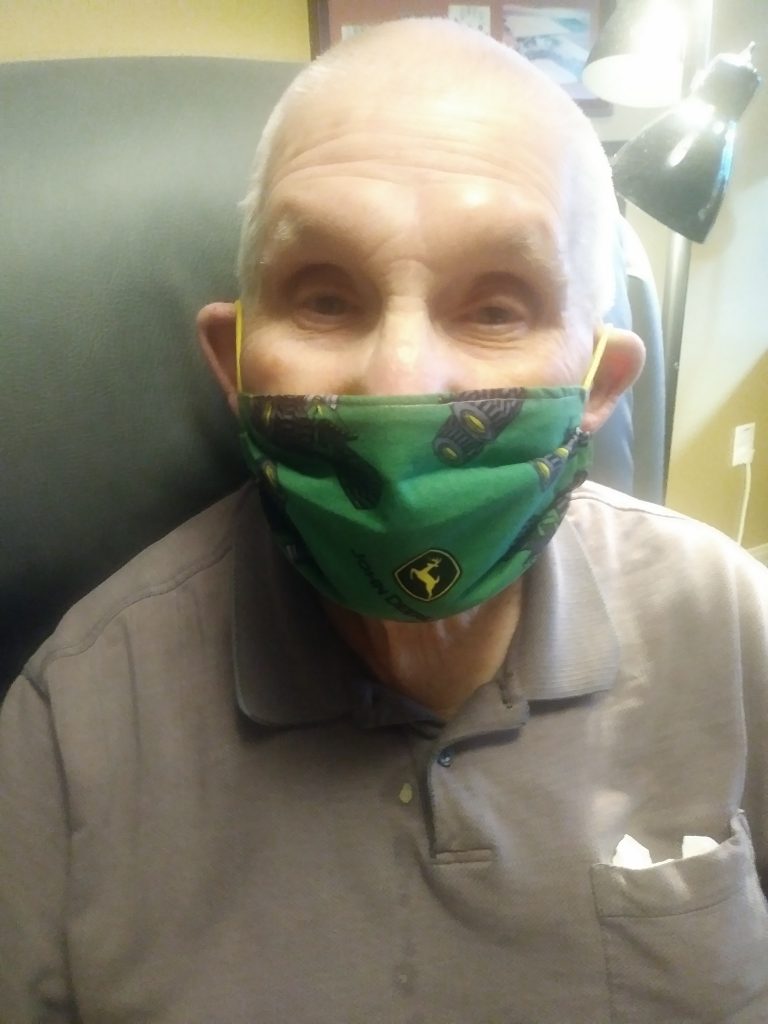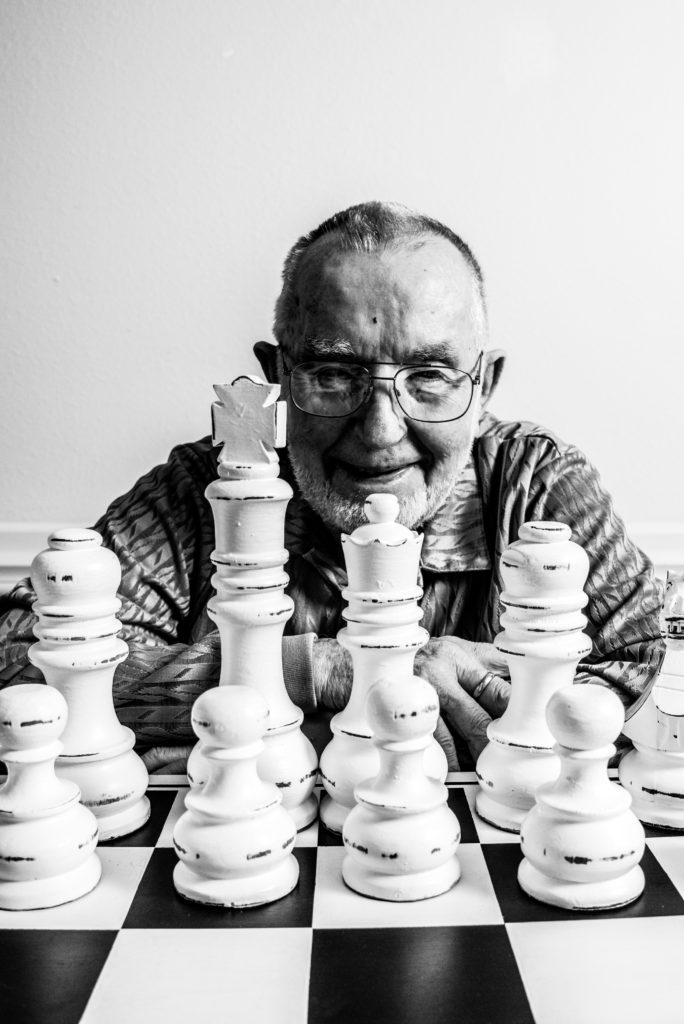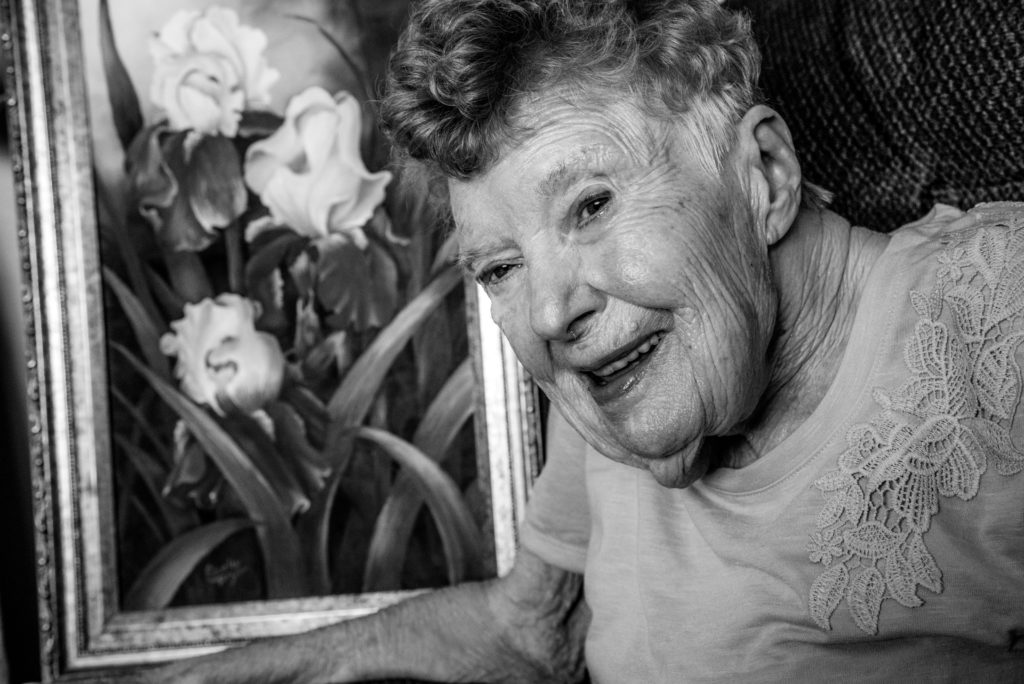If you wander the halls of Buffalo Hill Terrace or the Immanuel Skilled Care Center on an ordinary day, you’ll notice that many residents are visiting with family members, friends, and other loved ones. Just over a year ago, the COVID-19 pandemic swept through our community and the world, requiring Immanuel Lutheran Communities to close to visitors. This meant that our residents were unable to visit with those who do not live within our walls.
We know that socialization with friends and family is critical to resident well-being, so our teams immediately started working on ways to help residents see those they love. We started by expanding our remote visitation options by purchasing iPads, acquiring additional iN2L (It’s Never Too Late) computer systems, and making preparations to install a connected theater system in the Skilled Care Center. This worked well, and residents embraced the technology.
However, nothing can replace in-person visitation. So, we started thinking about ways to make it possible for residents and their loved ones to see each other safely. Our first step was to install an outdoor visitation area at Buffalo Hill Terrace. We added a glass barrier to an existing patio, creating a place where independent and assisted living residents could visit with friends and family. Thanks to the generosity of our donors, we were able to add a retractable awning to keep the sun and rain off of residents during visits.
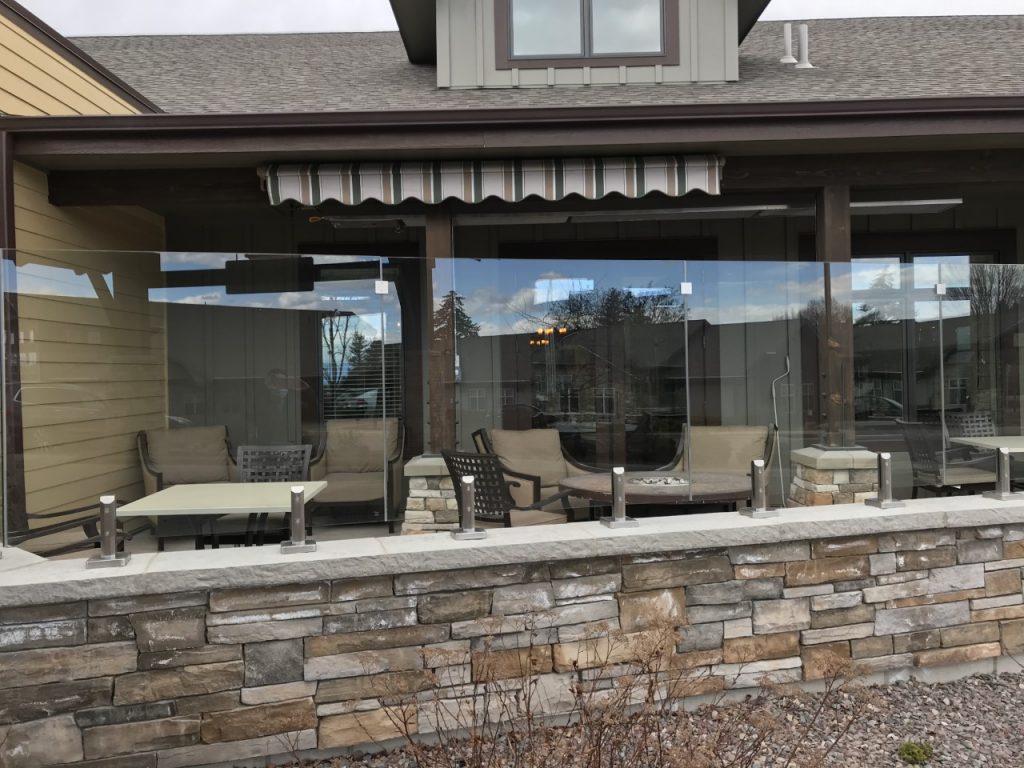
This outdoor space worked beautifully in the summer, but it was only for Buffalo Hill Terrace residents, and as temperatures cooled, it wasn’t quite as pleasant to use as it was initially. So, with the help of grants from the state and more generosity from our community of donors, we installed glass-walled visiting spaces at both the Immanuel Skilled Care Center and Buffalo Hill Terrace. To make these spaces even more functional, they include wireless adaptive communication systems with headphones that allow users to adjust the volume and hear each other more clearly.
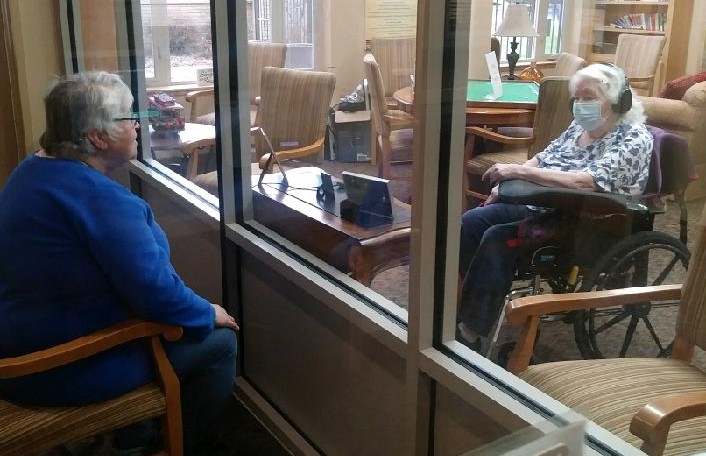
We’re open to visitors again, now, and residents can once again host those they love in their apartments or rooms. Still, we are happy to have these new, permanent visitation spaces. When future epidemics (like the flu) require us to close to visitors, residents will still be able to visit with those they love most while staying safe from infection. Your gifts to this project will thus continue to improve the resident experience long into the future.


